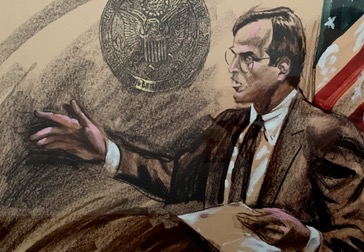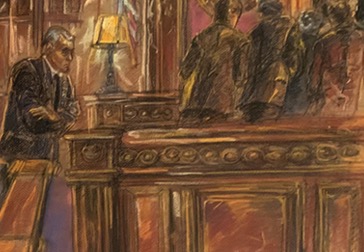Government signals sea change on health care false claims
The U.S. Department of Justice announced a major change in its policy regarding qui tam litigation in October. Moving forward, DOJ will now file a motion to dismiss when it decides a qui tam case is without merit rather than allowing the relator to proceed on his or her own.
The announcement, made by Michael Granston, director of DOJ’s commercial litigation branch of the civil fraud division, could result in a sea change in the False Claims Act litigation landscape for hospitals and other health care entities, as many FCA claims for health care fraud begin as qui tam cases.
Granston followed up his announcement by issuing a memorandum in January to all DOJ attorneys providing instruction on the factors that should be considered in evaluating qui tam cases for potential dismissal.
While the False Claims Act was originally passed by Congress in 1863 to curb fraud committed by unscrupulous contractors supplying the Union Army, the FCA has played an increasingly important role in the health care industry over the years. Today, many FCA claims are brought against hospitals, pharmaceutical companies, medical device manufacturers, and other health care providers. Though a number of these cases deal with Medicare and Medicaid fraud, many major FCA cases allege failures to comply with the Stark Law and the anti-kickback statute.
To encourage those with knowledge of fraud to come forward, the law allows anonymous whistleblowers, called relators, to bring FCA lawsuits on behalf of the federal government. These cases are referred to as qui tam, which is a shortened version of the Latin phrase “qui tam pro domino rege quam pro se ipso in hac parte sequitur,” meaning “who as well for the king as for himself sues in this matter.” If the qui tam case results in a recovery for the government, the relator, as well as his or her attorney, is often entitled to recover a portion of that recovery.
After a relator files a qui tam case under the FCA, the government has the authority to either intervene in the case, allow the relator to proceed on his or her own, or move for a dismissal. While the government has always held the authority to dismiss pursuant to 31 U.S.C. 3730(c)(2)(A), it has rarely done so as a matter of practice in past cases. Instead, DOJ’s policy was to allow qui tam cases to proceed so long as the relator was willing to do the work and bear the cost, even if DOJ did not believe the case had merit. Granston’s announcement presents a major change, and he explained the policy shift by noting that the government has come to recognize the major burden that meritless qui tam cases place on both industry and the court system.
In his January memo, Granston noted that meritless qui tam cases require the government to expend significant resources and sometimes result in adverse decisions that may impact future FCA cases. Granston laid out a “non-exhaustive list of factors” for DOJ attorneys to consider when evaluating qui tam cases and deciding whether the government should exercise its power to move for dismissal. The factors include curbing meritless qui tam cases, preventing parasitic or opportunistic qui tam actions, avoiding interference with federal agency policies and programs, controlling litigation brought on behalf of the United States, safeguarding classified information and national security interests, preserving government resources, and addressing egregious procedural errors.
Granston’s memo goes on to analyze the current split in the federal circuits regarding the deference that courts should give to DOJ motions for dismissal pursuant to § 3730(C)(2)(A). Some courts, including the D.C. Circuit, have adopted a policy of giving the government’s motion for dismissal “unfettered discretion,” while others, including the 10th Circuit, have applied a more “rational basis” test. While the memo maintains that the “unfettered discretion” analysis is correct, it also urges attorneys to argue that the 10th Circuit “rational basis” test was intended to be highly deferential to the government’s prerogative.
The memo also provides practical guidance for federal attorneys considering moving for dismissal. It notes that DOJ attorneys are not required to take an “all or nothing” stance, and that in certain cases, it may be appropriate for the government to seek only partial dismissal of certain claims. Additionally, the memo urges attorneys to work closely with the affected agencies when deciding whether to move for dismissal. Granston also encourages attorneys to consider advising the relator before moving for dismissal and provide notice of the deficiencies in the case, as some relators might choose to voluntarily dismiss his or her case.
While the results of Granston’s announcement have yet to be seen, DOJ’s shift in policy may serve as a reprieve for the health care industry by weeding out meritless FCA claims. The guidance from Granston’s memo also offers a framework for providers and their counsel to consider when trying to persuade the government not to intervene during the investigative phase of an action. Furthermore, the new policy may serve to deter would-be whistleblowers and their attorneys from pursuing tenuous cases in the first place. However, it will take time to see how DOJ will implement its new policies, and it remains unclear if DOJ attorneys will consider reviewing existing qui tam cases for dismissal, or just those brought in the future.
By: Davis Powell
May 1, 2018








